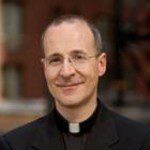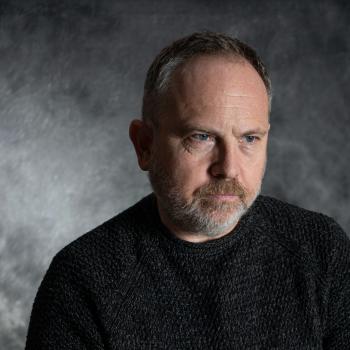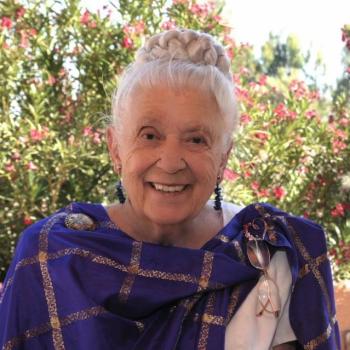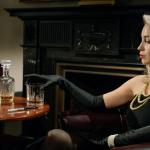Before coming to know the true self, one must confront the false self that one has usually spent a lifetime constructing and nourishing. ~James Martin
From the outside looking in, James Martin was living the good life. He was 29 years old and had a nice job working for a Fortune 500 company. He had a fancy apartment, hip friends, wore stylish suits to work and had begun to climb the corporate ladder. But there was a problem: he had the gnawing feeling that something wasn’t right.
When James began taking a closer look at his life, he came to a realization he had long tried to suppress—he was miserable. In his words, he was “overworked, stressed and lonely.” While some saw him as a successful young business professional, he viewed his life as having no meaning or purpose.
Yet, wasn’t he living the American dream? He had graduated from a top-tier college and landed a good-paying corporate job. And just like his peers, if he stayed on the straight and narrow, he would get married, buy a big house in the suburbs and raise a family. Only, Martin had determined that:
This way of living simply wasn’t for me…my heart knew that as much as I wanted to want this, I wasn’t made for the life I was supposed to want.
He found a solution to his crisis when he stumbled upon Thomas Merton’s autobiography The Seven Storey Mountain. Martin was captivated. He had found a kindred spirit, “a man roughly my own age, who had struggled with the same things I did: pride, disappointment, confusion, doubt, sadness, loneliness.” There was one passage that was especially resonant, when Merton asked:
Why do we have to spend our lives striving to be something we would never want to be, if we only knew what we wanted? Why do we waste our time doing things which, if we only stopped to think about them, are just the opposite of what we were made for?
In the book Becoming Who You Are, James Martin details his early adult life and how he came to believe he was living a lie. He writes “the person I had presented to others—the person interested in climbing the corporate ladder, in always being clever and hip, in knowing how to order the best wines, in attending the hottest parties, and in getting into the hippest clubs, in never doubting my place in the world, in always being, in a word, cool—that person was unreal. That person was nothing more than a mask I wore.”
So Martin made a bold move. At the age of 29, he left the corporate world to become a Jesuit priest, effectively shedding his false self in order to fully realize his true identity. Almost 25 years later, Martin is still a Jesuit priest. During the intervening years, he has written numerous religious books that have received widespread acclaim, while remaining true to his Jesuit vows of poverty, chastity, and obedience to Christ and the Pope.
So why did Martin pursue the role of corporate “suit” in the first place? Martin says that he had created a persona that he thought would be pleasing to his family and friends. His “false self” was sure that a life in corporate America was the right path. He points out, via the words of Richard Rohr, “Our false self is who we think we are. It is our mental self-image…which most people spend their whole lives living up to…or down to.”
Much like Martin, many of us adopt the mannerisms and persona of the “false self” each day we walk out the door and head out into the world. I know because I have worn “the mask” myself for years, climbing the corporate ladder until one day I stopped to take in the view up ahead—and not liking what I saw, began the slow descent back down from whence I came, a process that continues today.
What might be most puzzling in the whole process is this: what is our true self and how do we find it? While Martin does not answer these questions directly, he believes that our true self “is the role that God wants us to play”, which means it may be in direct opposition to the role society expects from us. In Martin’s words:
God desires for us to be the persons we were created to be: to be simply and purely ourselves, and in this state to love God and let ourselves be loved by God…the more we live out our true selves, the more we become the person whom God intended, the more we see the spectacular effects of a well-lived vocation .
It’s important to note that Martin believes that our path may be quite different than his and doesn’t have to entail leaving our everyday lives to join the priesthood or enroll in a Buddhist monastery. According to Martin, the paths we are called to are all different, all unique in their own way:
The path to sanctity for a young mother is different from that of an elderly priest. Moreover, the path to sanctity for an extroverted young man who loves nothing more than spending time with his friends and cheering on their favorite baseball team over a few beers is probably different from that of the introspective middle-aged woman who likes nothing better than to sit at home on her favorite chair with a good book and a pot of chamomile tea. One’s personal brand of happiness becomes clearer once the true self is revealed.
And once this true self is revealed and realized, it becomes harder to live a life that is guided by the false self, the self created by the pull of society and our peers. As Richard Rohr says, “Once you learn to live as your true self, you can never be satisfied with this charade again: it then feels so silly and superficial.”
Some parting sage advice comes from Fanny Brice, an American singer and actress, who passed away in 1951. She was once quoted as saying:
Let the world know you as you are, not as you think you should be, because sooner or later, if you are posing, you will forget the pose, and then where are you?
















